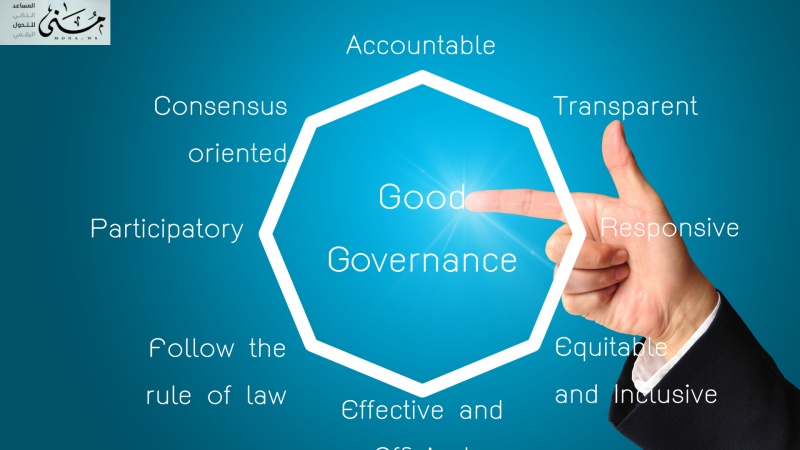The role of electronic archiving goes beyond just storing data, to become an effective tool that directly contributes to improving decision-making processes at various levels. In this article, we review how electronic archiving supports decision-making processes by providing accurate data, facilitating access to information, and improving response speed.
What is electronic archiving and its importance?
Electronic archiving is defined as the process of converting paper documents into electronic copies stored in secure digital systems. These systems contribute to managing documents in an organized and automated manner that allows them to be retrieved quickly and easily.
The real importance of electronic archiving lies in its ability to eliminate the challenges associated with traditional methods of data preservation, such as the loss of documents or the difficulty of searching for them. Instead, electronic archiving provides a solution that enables organizations to achieve transparency and efficiency.
For example, when making critical decisions, managers need accurate and up-to-date information. Electronic archiving ensures that this information is readily available, reducing reliance on guesswork and enhancing decision accuracy.

Statistics on electronic archiving and its impact on decisions
According to specialized reports, more than 85% of large organizations currently rely on electronic archiving systems to manage their information, and a study conducted by the company "IDC says companies that have adopted digital archiving have seen a 35% improvement in decision-making speed, due to the ability to quickly access data.
Furthermore, research indicates that organizations that rely on electronic archiving enjoy an increase of up to 50% in risk management efficiency, as digital systems help analyze data accurately, which contributes to detecting errors or potential problems before making strategic decisions.
How has electronic archiving evolved to support decision-making processes?
Over the years, electronic archiving has evolved significantly beyond its traditional role as a data storage tool. Today, these systems are equipped with artificial intelligence and graphic analysis technologies, enabling them to provide proactive insights that support decision-making, through:
Big Data Management
In the digital age, organizations deal with massive amounts of data. Modern electronic archiving relies on big data management technologies.Big Data), where data is collected from multiple sources and analyzed to provide accurate recommendations.
Smart search techniques
Modern electronic archiving provides advanced search tools that enable the user to find the required documents in seconds, using simple keywords. This development enhances the efficiency of managers and administrative teams when they need to make quick, evidence-based decisions.
Cyber Security
In addition to facilitating access, modern electronic archiving systems ensure that data is secured using encryption and multi-factor authentication techniques. This ensures that the information on which sensitive decisions are based is protected from cyber threats.
Electronic archiving supports decision-making in institutions through:
Providing accurate and up-to-date information
The electronic archiving system helps to store documents and data in an organized and updated manner, making them ready for immediate use when needed. This reduces errors resulting from relying on old or incomplete information.
Speed up decision making
In dynamic work environments, time is of the essence. Electronic archiving reduces the time required to search and retrieve documents, giving leaders time to analyze data and make informed decisions.
Data analysis to support strategic directions
Modern archiving systems enable organizations to periodically analyze their accumulated data, helping to uncover patterns and potential opportunities.
Enhance transparency and reduce errors
The electronic archiving system allows tracking of all processes and procedures related to documents, which enhances transparency and reduces the possibility of errors. This is of utmost importance in sectors that require high accuracy, such as the financial or health sectors.
The most important archiving systems that support decision-making processes
Electronic archiving has become an essential tool in improving the efficiency of institutions and enhancing decision-making processes. Here is a look at some of the most prominent of these systems and their role in supporting decision-making processes:
systemMicrosoft SharePoint
It is consideredSharePoint is one of the most widely used archiving systems in the world, and is distinguished by its ability to manage documents and content in an integrated manner. It provides a dedicated interface for analyzing data and viewing the latest reports and information, which helps organizations make decisions based on accurate and up-to-date data.
systemAlfresco Content Services
It is consideredAlfresco is an open source system that provides a comprehensive document and information management solution that helps analyze accumulated data, enabling leaders to discover patterns and trends that support their strategic decisions.
systemOpenText Content Suite
OpenText is a global, integrated content and information management system, widely used in large organizations. Through its advanced analytics and integration with other business systems, OpenText provides comprehensive information that helps organizations evaluate options and make effective decisions.
systemM-Files
It is characterized byM-Files uses AI technologies to intelligently classify and manage documents, making it a superior choice for electronic archiving. Thanks to its intelligent classification and easy access to information, M-Files helps organizations save time and analyze data effectively, which enhances quick and fact-based decision-making.
systemDoc Suite
It is consideredDoc Suite is a modern and flexible document management system that supports decision-making processes through its advanced technologies.
FeaturesDoc Suite:
Smart Document ManagementThe system enables advanced storage and organization of documents using artificial intelligence.
Custom Reports and Analytics: Enables accurate reporting to support strategic decisions.
Cyber Security: Provides comprehensive protection for data and documents, ensuring decisions are made based on reliable information.
Easy interfaceIt features a flexible user interface that makes it easy to handle for all levels of employees.
roleDoc Suite in Decision Making:
Quick organization: It helps to access the required information very quickly.
Providing accurate insights: Provides advanced analytics that help organizations determine the best options.
integration:Integrates with other management systems to provide unified and up-to-date data, enhancing decision-making efficiency.
By automating processes and analyzing data, DocSuite helps organizations improve the efficiency of administrative processes and make informed decisions.
Organizations rely on electronic archiving systems as essential tools to support decision-making processes. These systems provide an ideal environment for managing and analyzing data, ensuring that the right information reaches leaders at the right time.
The role of electronic archiving in supporting strategic and tactical decisions
Strategic decisions are defined as long-term decisions aimed at achieving the main objectives of the organization such as expansion, entering new markets, and developing innovative products.
The role of electronic archiving here lies in:
Big Data AnalysisArchiving contributes to providing a reliable and comprehensive database that helps in analyzing trends and making informed strategic decisions.
Knowledge Management: It enables the preservation of historical documents and references that form the basis for formulating strategic plans.
Time efficiencyFacilitating rapid access to information enhances the organization's response to strategic changes.
Tactical decisions are defined as short- or medium-term decisions aimed at improving daily operations or achieving specific objectives within a strategic framework.
The role of electronic archiving here lies in:
Process automation: Facilitate access to the documents required to make daily tactical decisions quickly and efficiently.
Communication between departments: Improve information transfer between different departments to support consistent tactical decision-making.
reduce errorsElectronic archiving ensures the accuracy of data used in decision-making, reducing the possibility of errors.

Comparison between the role of electronic archiving in supporting strategic and tactical decisions
|
The element |
Strategic decisions |
Tactical decisions |
|
the goal |
Achieving long-term goals such as expansion and development. |
Improve daily operations and achieve short-term goals. |
|
The main role of archiving |
Analyze historical trends and support major corporate decisions. |
Facilitating quick access to information to support daily decisions. |
|
Type of data used |
Long-term historical and analytical data. |
Operational and daily data of a practical nature. |
|
Impact on the organization |
Directing the overall path of the organization to achieve growth and sustainability. |
Improve operational efficiency and daily operations. |
|
Required archiving tools |
Advanced analysis systems and comprehensive document management. |
Simple and fast systems for accessing relevant documents. |
|
Decision making time |
Long term and needs in-depth analysis. |
Short term and requires a quick response. |
|
The importance of automation |
Improve analysis and decision support based on historical data. |
Speed up operational processes and reduce errors. |
Electronic archiving has become a basic necessity to support decision-making at all levels, by facilitating access to information and analyzing data accurately and quickly. Thanks to the development of modern technologies, electronic archiving contributes to enhancing institutional efficiency and achieving development goals, making it a strategic investment to achieve excellence and sustainability.
 الأرشفة الإلكترونية أداة أساسية لتعزيز عمليات اتخاذ القرار
الأرشفة الإلكترونية أداة أساسية لتعزيز عمليات اتخاذ القرار









Comments
Add New Comment